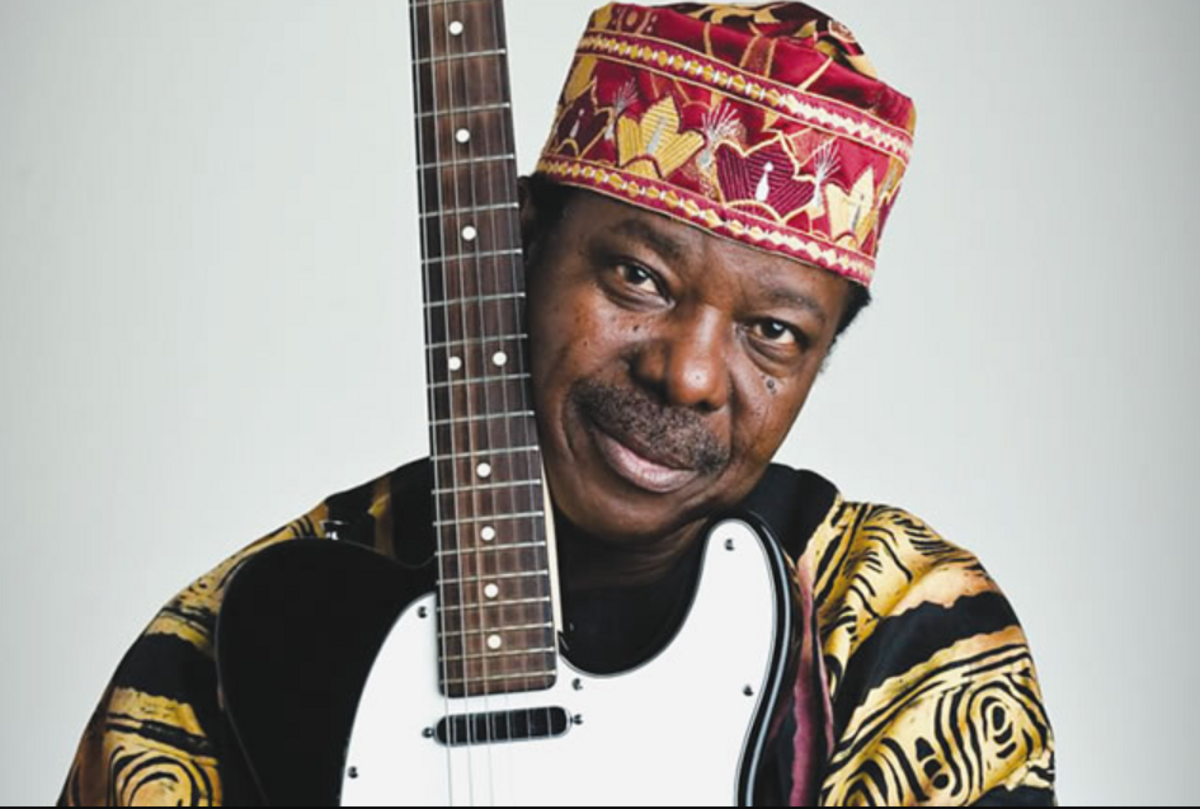King Sunny Ade (Sunday Adeniyi) was born in Oshogbo, Osun State, Nigeria on the 22nd of September, 1946. He is a musical Icon of Juju Music, a well-accepted genre among the Yoruba people of Nigeria. His legendary status is attributed to his ability to play multiple instruments which include; the tenor guitar, the clarinet, synthesizers and the vibraphone among others. These instruments were his contribution to the evolution of Juju music. The dub and wah-wah guitar lick were his signature. Credited for being one of the first African pop musicians to gain international recognition.
In I957, he formed his band, Green Spots which he later called the African Beats. Shortly after rising to national stardom in the 1970s and launching his label, King Sunny Ade was signed to an International label called Island Records in 1982. This will become the beginning of his global success. He released 2 remarkable albums titled Juju Music in 1982 and Synchro System in 1983 which gave him his first Grammy nomination. Today, KSA is the chairman of the Musical Copyright Society of Nigeria.
Early Life of King Sunny Ade
As earlier stated, the musical Icon of Nigerian Juju music, King Sunny Ade was born in Oshogbo even though his dad was from Ondo State. KSA was born into a royal family which made people fondly call him omooba, a Yoruba word that connotes the son of a king. His father played the organ for the church while his mother, Maria Adegeye (née Adesida), was a trader. From his maternal side, the Adesidas are from the Royal family in Akure, Ondo State. His maternal grandfather, Oba Adesida I ruled Akure for 60 years and his nephew who was King Sunny Ade’s cousin, Oba Adebiyi Adegboye Afunbiowo II was also a King.
The Legendary Career of the Musical Icon of Nigerian Juju Music
King Sunny Ade is rumoured to have left secondary school in the guise of furthering his education at the University of Lagos. It was in Lagos that his musical career began. However, other sources claimed that he joined a series of bands to perform in Abeokuta and later Lagos before he started his band. The bottom line is that Lagos was pivotal to his success in becoming a musical icon of Nigerian Juju music.
King Sunny Ade’s career began as a member of the Idou Woye music group which he accompanied for a show in Abeokuta, Ogun State. He later left the group to join Moses Olaiya’s Federal Rhythm Dandies, a band committed to the highlife music genre. He later left the group on claims that his style of music was different. This time, he went solo to start his band which he first named The Green Spots. His band went through a series of changes of names. At one time, he called his band the African Beats and then later renamed again to Golden Mercury.
He was influenced by the music of Tunde Nightingale, who most articles wrongly credited as the pioneer of Juju music. From research, it was found that the actual pioneer of Juju music was Tunde King. Although, King Sunny Ade borrowed from the style of Tunde Nightingale who was originally influenced by Tunde King.
It is fair to mention that the legendary career of King Sunny Ade goes beyond just being a musical icon of Nigerian juju music, he is also a visiting lecturer at Obafemi Awolowo University, Ile-Ife and a member of the Order of the Federal Republic (OFR) which I just found out ranks above the Order of the Niger. Research adds that King Sunny Ade is the first ever Nigerian to be nominated for the Grammys even though he did not win.
In conclusion, it is said that royal families from Nigeria, particularly among the Yorubas are not given to entertainment, that is, instead of entertaining people, they are the ones who are being entertained. King Sunny Ade defied this notion by becoming a musical icon of Nigerian Juju music who has royal blood running in his veins but still entertains the world on a global stage. It was said that he sneaked out countless times to dance and sing as a teenager but today, those who forbade royalty from engaging in entertainment believed to be for only commoners now wish they were in his shoes.

